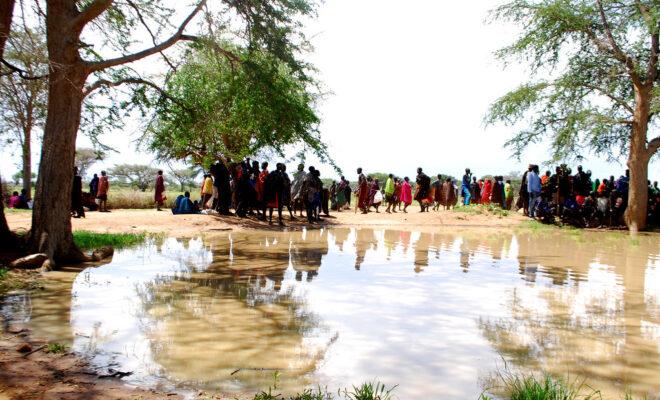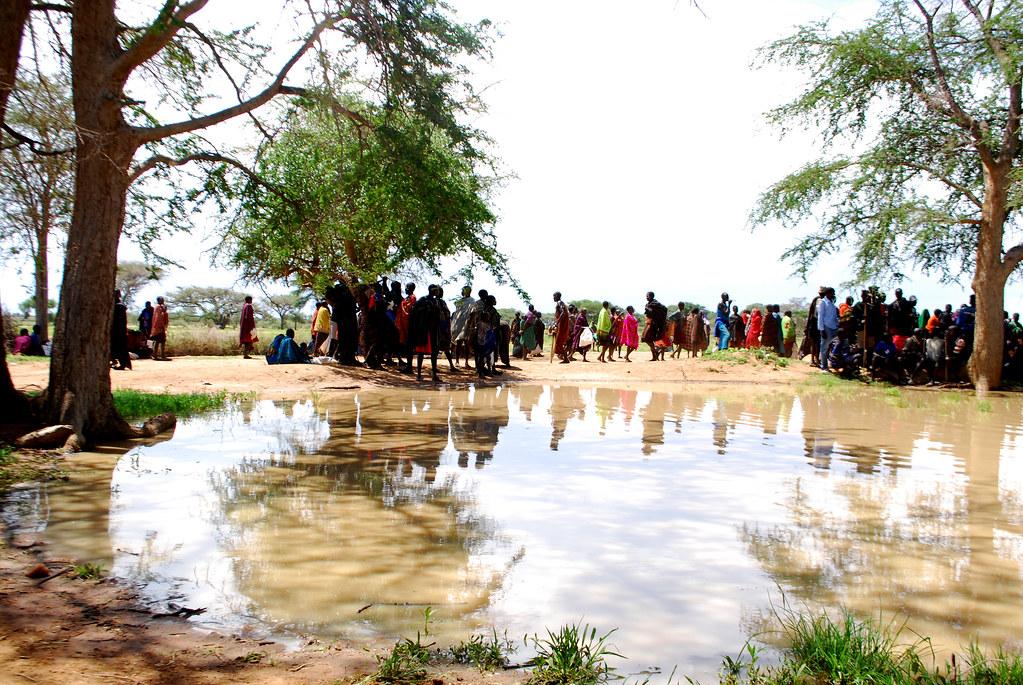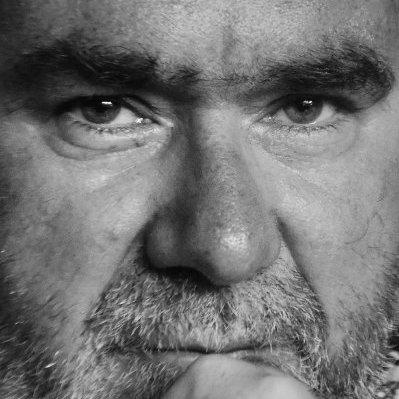A curious case of poisoning in Uganda’s poorest region

The World Food Programme has been accused of negligence after hundreds were poisoned and four people died after eating its food aid.

The WFP has distributed food aid in the Karamoja region of Uganda for decades. Credit: stttijn.
Earlier this March, the dry and isolated region of Karamoja was suddenly struck by a strange illness. In this north-eastern corner of Uganda, where the desert thorns cut into the dusty air, scores of people started vomiting around the same time. They suffered from high fevers and delirium, and complained of stomach pain and swollen limbs.
Health centres became overrun. “I didn’t believe everyone can fall sick at the same time like this,” says Helen Korobe, a nursing officer at Latome Health Centre III in Napak. By late-March, four people had died and 296 people had been affected by severe illness.
The culprit, it turned out, was the fortified porridge blend known as super cereal. The UN’s World Food Programme (WFP) distributes this form of food aid to 44 government health centres in Karamoja, an arid and food-scarce region.
The cases of poisoning were limited to the two districts of Napak and Amudat, but as a precautionary measure, the WFP stopped all distributions of super cereal across Uganda. It also halted the supply of all super cereal produced by Turkey’s Demirpolat Group, which manufactured the food aid delivered to Karamoja, worldwide. About 21,000 tons of product, with an estimated replacement value of $22 million and set for 25 different countries, was placed on hold.
In Karamoja, the WFP distributed alternative food aid where possible, but many residents were likely left with even more limited sustenance than usual.
“There is no food to eat, so [super cereal] is the only option, especially for the vulnerable groups of people,” says Emmanuel Tebayang, a policy analyst for the advocacy group, Karamoja Development Forum.
Hunger in Karamoja
Karamoja is the poorest region in Uganda with a poverty rate more than three times the national average. Up to 45% of households here are food insecure, and people mostly survive through a combination of small-scale farming and animal herding. This year’s limited rainfall has made conditions particularly severe, with some river beds drying up entirely and hundreds of animals perishing amidst the drought.
The struggles of Esther Chamaka and her family, who live in Amudat, are fairly typical. They have at most one meal a day and often wait until nightfall to do so.
“Hunger is disturbing us,” says Chamaka. “You can sleep for two to three days without food.”
Kelvin Naibei, a clinic officer at Amudat Hospital, estimates that he treats a patient with severe malnutrition at least every two weeks. “These people don’t have food,” he says.
According to the WFP, which has operated in Karamoja for 50 years, the region suffers from food scarcity for a range of reasons.
“Karamoja has experienced decades of violence and instability and is the poorest region in Uganda,” says Peter Smerdon, regional spokesperson for the WFP. “Some 74% of the population lives below the poverty line and acute malnutrition rates are often above emergency thresholds.”
Decades of support from the WFP has provided a life line for Karamoja, but some argue its presence may have led to over-reliance. Tebayang, for example, suggests that endless distributions have compromised people’s independence and led locals to equate sustenance with food aid.
“When we start to think about food as being [just] cereals that’s a disaster,” says the analyst. “The more fortified food we receive, the more food aid we receive, the more we learn that food is cereals.”
Tebayang goes as far as to suggest aid distribution should stop entirely, arguing that self-determination and support for pastoralist traditions are the keys to mitigating hunger in Karamoja. Historically, locals got many crucial nutrients from animal products, including milk and blood.
An inconclusive investigation
Following the poisoning incident, Uganda’s Health Ministry launched an investigation with support from the WFP and major international players. Multiple tests on super cereal were conducted at laboratories in Uganda, Kenya, South Africa and the US. The results, released in late-May, were reportedly inconclusive.
“To date, more than 2,400 food-related laboratory tests were conducted – including for mycotoxins, heavy metals, pesticides and microbial contaminants – but the root cause of the problem has not yet been established,” says Smerdon.
The ministry’s three-page report did, however, reveal that some samples of super cereal contained traces of aflatoxin B1, low levels of yeast and mould, and coliform bacteria. A separate study by the Food and Drug Administration (FAO) in the US discovered traces of atropine, which is found in deadly nightshade plants and can cause nausea and delirium.
The FAO tests also confirmed, however, that super cereal made by manufacturers other than the Demirpolat group is safe to consume. The WFP agreed to resume its super cereal distributions by other suppliers.
Demirpolat disputes these findings and says it “carried out the procurement of the raw materials and the production of the processed products in compliance with all the related regulations and procedures. Moreover, the superintendence company appointed by the World Food Programme (WFP) inspected all the production stages and conducted all the necessary food quality and safety controls. Most importantly, the superintendence company appointed by the WFP issued certificates that confirm the safety, quality, and fitness for human consumption of the products. No actual connection or causational link has been established between the client’s products and the alleged poisoning incidents”.
Unfinished business
The recommencement of super cereal may feel like a mixed blessing for Karamoja locals just a few months after the mass poisoning. But life must go on. Rhoda Chemanda, for example, clearly remembers having to rush to hospital, feeling dizzy and her arms swelling up, after eating a cup of super cereal in March. But she has few options other than to return to eating the food aid.
This story, however, is not yet over. On 14 June, the civil society organisation Anti-Counterfeit Network filed a lawsuit in Uganda’s High Court. It accuses the WFP of negligence and the Health Ministry of failing to keep residents of Karamoja safe.
A date for the hearing had not been set. The WFP said it could not comment on an ongoing legal matter.
Amendment (15/10/21): A comment from Demirpolat’s legal representatives disputing the scientific investigations’ findings has been added.




